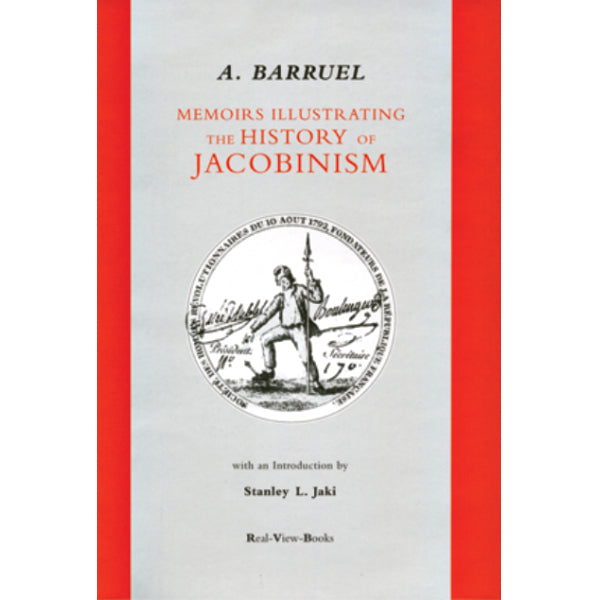Memoirs Illustrating the History of Jacobinism by Agustin Barruel
Memoirs Illustrating the History of Jacobinism by Agustin Barruel
Couldn't load pickup availability
Violence in the streets, the guillotine at work, priests driven into exile — the French Revolution’s terror looked spontaneous. Abbé Augustin Barruel insisted it was not. His Memoirs Illustrating the History of Jacobinism traces the deliberate architecture of destruction, exposing three converging conspiracies: against the Church, against monarchs, and against society itself. Here lies his argument in full: that the Enlightenment was not merely a flowering of ideas, but a coordinated campaign to uproot faith, family, and throne.
Barruel names names. Voltaire and D’Alembert mocked Christianity while pushing political systems that undermined kings. Rousseau’s theories seeded new forms of radicalism. Philosophers filled France with anti-Christian tracts. Masonic lodges, both public and occult, served as engines of secrecy, uniting men of letters, princes, ministers, and magistrates. Then came Weishaupt’s Illuminati, with its carefully structured code of degrees, oaths, and covert strategies of infiltration — designed to dissolve existing institutions from within.
Drawing on official reports, seized correspondence, and testimonies from disillusioned insiders, Barruel reconstructs how Freemasonry and Illuminism fused their efforts with Jacobin radicalism. He details their congresses, their quarrels, their plans, and finally their triumph in the convulsions of 1789-1794. The Revolution, he argues, was not a storm of the people but the harvest of decades of plotting. In its wake lay a shattered Church, a dethroned monarchy, and a society reordered by force.
For readers confronting modern claims that revolutions spring only from popular unrest, Barruel’s work is a stark counterpoint. His study remains a touchstone for anyone who would understand how ideas, secret societies, and ideology can converge into upheaval. In an age once again marked by radical agitation, his warning deserves fresh hearing. (2002ed, 846pp, hb)

